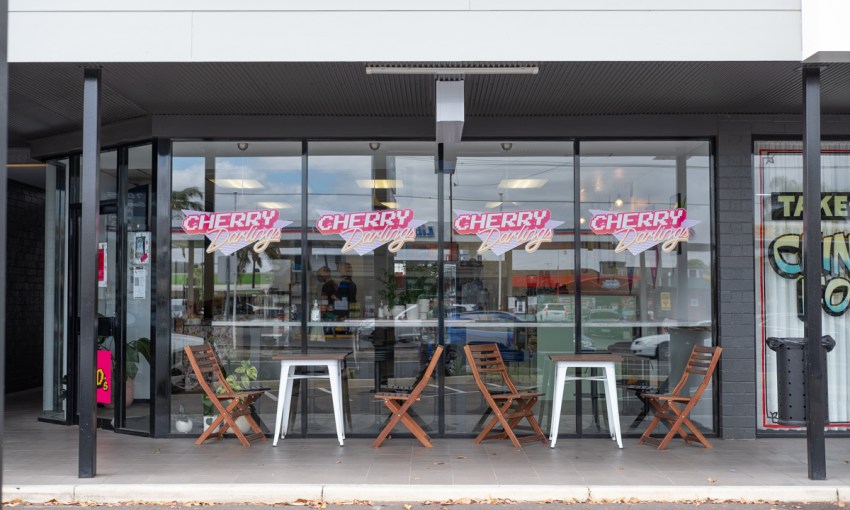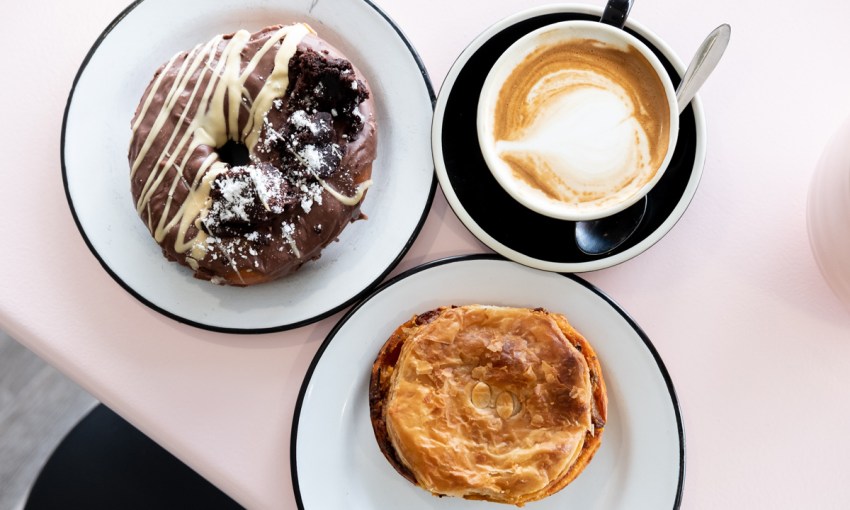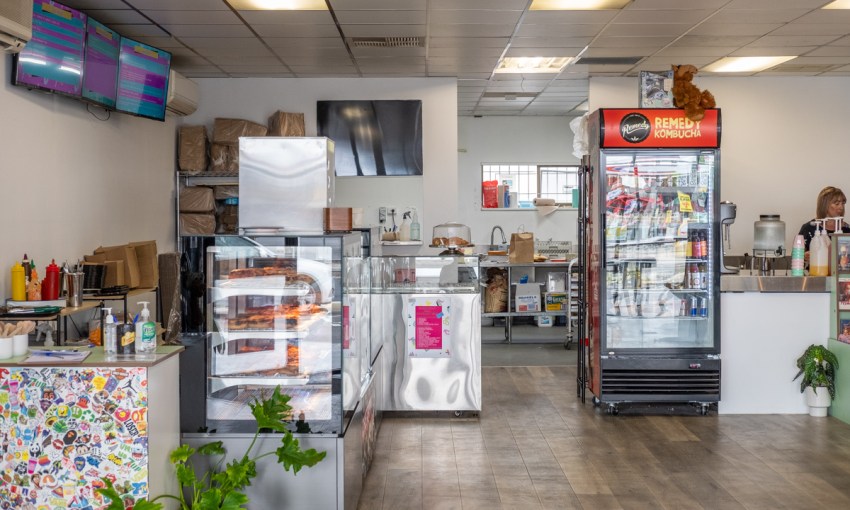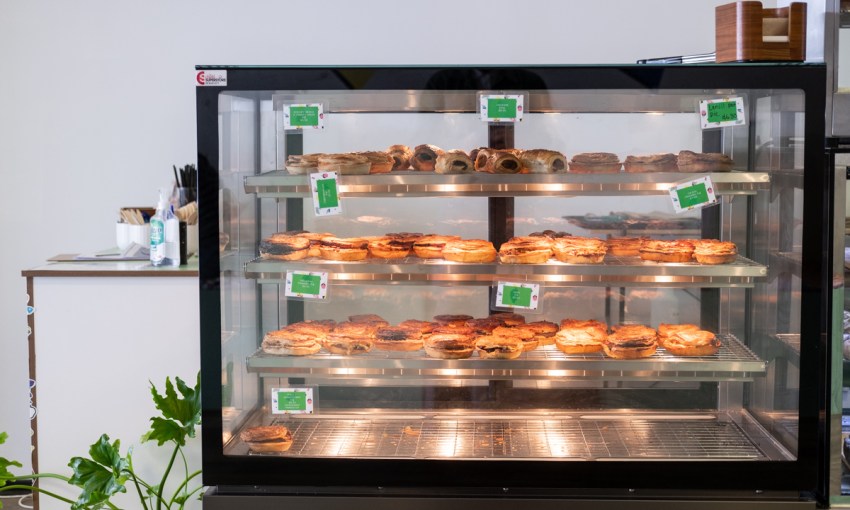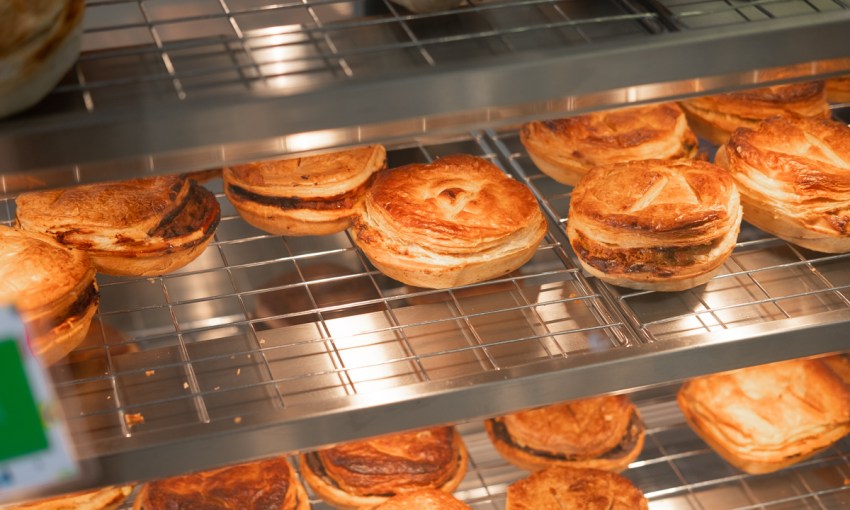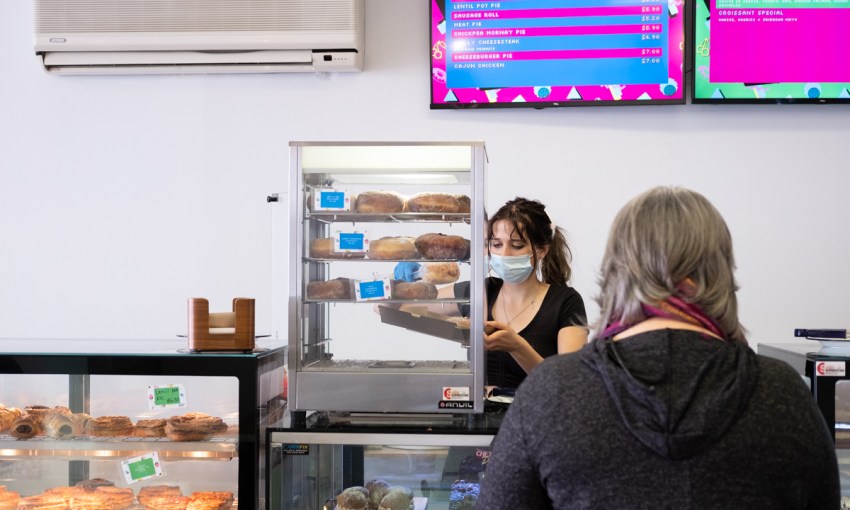The vegan Marleston eatery is staging a meat- and dairy-free fried food festival this weekend, for those taking a stand against the Royal Adelaide Show’s use of animal livestock.
Cherry Darlings is hosting an Adelaide Anti-Show
Before opening the uber-trendy, all-vegan eatery Cherry Darlings Bakehouse, Tim Salmon lived in regional Australia. He moved between country Tasmania and South Australia before settling in Wellington, near Tailem Bend.
As par for the course for these “dairy” and “animal-based farming communities”, Tim says he frequented a lot of carnival and agricultural shows. At one of these shows, he says he witnessed a host raffle off a “jar full of bull semen”.
“That was my childhood,” Tim says, laughing at the memory. Some of these moments were funny, but these formative years prompted him to question the food he was putting in his mouth.
“I also remember going to chicken sheds when I was a kid and they’d have to turn off the lights once a day, because if they leave the lights on all day and then if there’s a power outage, the chickens will have a heart attack. They don’t know what to do because the lights are on all the time,” he says.
“You start to accept that it’s normal, and then you sort of think about it and it’s, like, that is very abnormal to do to an animal.”
It’s partly these experiences that led Tim to host an Anti-Show at Cherry Darlings Bakehouse in the western suburbs this weekend.
The aim, the father of two says, is to offer an alternative for those who don’t support the Royal Adelaide Show’s agricultural bent, but don’t want to forgo the fun.
“My partner was like, ‘Let’s call it the Anti-Show, because, obviously, the show is not something we agree with, ethically’,” he says.
“People can still get the treats they want, but without having to support that industry.
“We will do choc dips, cheesecakes, and lots of deep-fried stuff.”
Showbags are on the cards, as well as face-painting, guessing games, fairy-floss doughnuts and deep-fried vanilla slices.
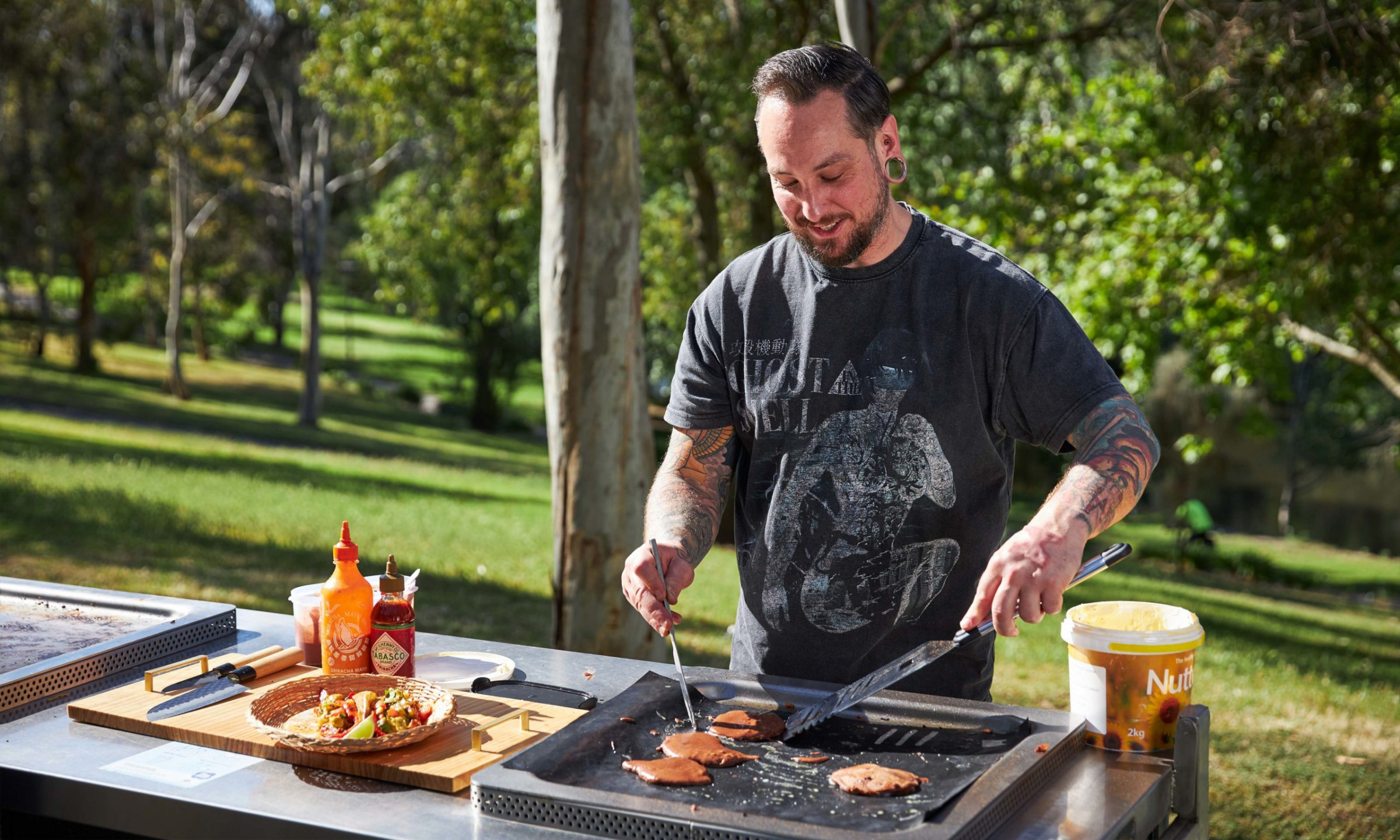
Tim completing the CityMag Chef vs Public BBQ challenge with gumption. This picture: Andre Castellucci
Tim is not suggesting there are examples of animal abuse or neglect occurring at the Royal Adelaide Show. Instead, he is opposed to what the event represents.
—Jordan Philip
The Show, which is run by the Royal Agricultural and Horticultural Society of South Australia, has a history rooted in pastoralism and horticulture.
The first Show, in 1840, only exhibited “vegetables, cereals, and cheese, wool and leather goods,” the Royal Agricultural & Horticultural Society of SA states on its website. This eventually morphed into displaying livestock.
In 2022, almost 200 years after the first edition, the Royal Adelaide Show now has flashy Showbags, loud car races and busy carnival rides. The Show’s identity has swirled and splintered off into different offerings. But livestock and produce remain at its core.
The Show, now running from 3—11 September, hosts various competitions determining the best of certain farm stock, such as beef, dairy, goats, pigs, poultry and sheep. A 2020 annual report refers to some of these competitions as the best of a certain “carcass” (aka dead animal body).
This is what Tim has a problem with. “It has always been funded by and is supported by the animal agricultural community,” he says. “It is the backbone of it – what it always has been.”
Tim is not alone in his concern. The Adelaide Vegans Facebook page includes at least two posts from members of the community making claims of animal cruelty.
New here? Sign up to receive the latest happenings from around our city, sent every Thursday morning.
CityMag reached out to the RSPCA SA for data on reports of animal neglect cases made against the Show, but we did not receive a response by deadline.
Royal Agricultural & Horticultural Society of SA marketing manager Jordan Philip tells CityMag the Show is important for people to have the opportunity to interact with animals and learn where “our food and fibre” comes from. She refutes any claims of animal neglect.
“The welfare of all animals at the Show is of utmost importance to all involved, including exhibitors, councillors and staff,” she says.
“The treatment and welfare of animals onsite is constantly monitored through dedicated vets, area supervisors and staff.”
Jordan says for many of the exhibitors – who are farmers – their livelihood depends on the welfare of their animals, so it’s in their “best interest” to ensure these animals are healthy and happy.
“The Royal Show ensures access to fresh water, suitable nutrition, ventilated shelter and comfortable resting areas,” she says.



